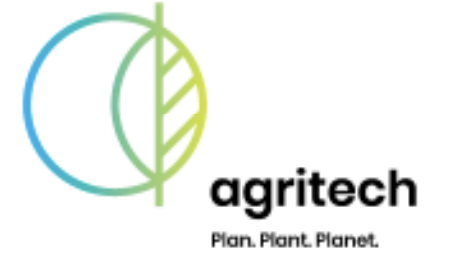Agritech
|
|
Project: AGRITECH-SPOKE 3 E SPOKE 8 Scientific Leader: Prof. Erasmo Neviani Participants:
|
AGRITECH is the National Center for the Development of New Technologies in Agriculture and is funded by the European Union – NextGenerationEU under PNRR Mission 4 "Education and Research" - Component 2, "From research to business" - Investment Line 1.4, "Strengthening research facilities and creation of national R&D champions on some Key Enabling Technologies".
AGRITECH carries out research and promotes enabling technologies for the sustainable development of agri-food production. The aim is to promote adaptation to climate change, the reduction of environmental impact in agrifood, the development of marginal areas, safety, traceability, and the typical nature of the supply chains.
AGRITECH involves 28 Universities, 5 Research centers, 18 Companies distributed throughout the national territory. The budget financed is 320 million of euros.
AGRITECH was born with the ambition to (i) combine the best scientific skills to make the Italian agri-food industry more competitive and sustainable; (ii) connect agricultural research infrastructures available at the national level; (iii) to use enabling technologies to improve productivity and sustainability; (iv) promoting the ecological and digital transition; (v) collaborate with companies to increase resilience and economic competitiveness in the agri-food sector; (vi) train the next generation of scholars in the sector, guaranteeing the human capital and the skills necessary to face future challenges.
The Center was build according to the Hub & Spoke structure. The Federico II University of Naples is the promoter and the responsible of the AgriTech National Center. Nine research nodes (Spokes) have been defined as executing subjects responsible for carrying out the activities which in turn make use of the collaboration of “Affiliates”. The University of Parma is affiliated with Spoke 3 (Spoke leader: University of Bologna) and with Spoke 8 (Spoke leader: University of Milan).
Spoke 3 “Enabling technologies and sustainable strategies for the smart management of agricultural systems and their environmental impact”
Spoke 3 has two of Agritech main objectives: “Resilience: Enhancing sustainable productivity and promoting resilience to climatic changes” and “Low impact: Reducing wastage and environmental impact”. The research activities will provide smart solutions and innovations that will allow efficient use of natural resources in order to support supply chain actors’ incomes and to reduce the environmental impact of agricultural activity, with particular attention to soil and water use. A breakthrough advance in knowledge is expected that can be useful to all levels. Advances in knowledge will be functional to develop relevant technology and innovations ready to be transferred to the production processes and, consequently, useful for increasing the sustainability of both agricultural and industry activities. Relevant economic and societal impacts are associated with the results, benefiting farmers, industries, and the whole society. The results will provide the scientific basis for new technologies for improving the natural resource sustainable use and preservation, and for improving the value of farmer production. All the innovations provided by the Spoke 3 will be tested with stakeholders that will be engaged in the implementation phase. The results will also be disseminated through demonstrators and Living Labs. The activities will create opportunities for creating new start-ups and spin-offs that will leverage the overall impact and benefits generated by the Spoke 3.
Spoke 8 “New models of circular economy in agriculture through waste valorization and recycling”
Spoke 8 contributes to three AgriTech main objectives: “Low impact: Reducing wastage and environmental impact “, “Circular: Development of circular economy strategies”, “Recovery: Sustainable development of marginal areas”. The activities aim to develop, test and validate innovative technologies to produce new products, new molecules, agroenergy, fertilizers, and organic matter from wastes, reducing energy dependence, synthetic agrochemicals use, supporting biological fertility of soils, mitigate climate change, and provide transition pathways for socio-technical transformations in agriculture. The programs will be mainly focused on building knowledge platforms and Living Labs to promote technology transfer to enterprise level. Moreover, prototypes and pilot plants will be devised for demonstration and dissemination to technicians and farmers enforcing technology uptake by the agricultural sector. Impact and sustainability assessment will be also considered to propose a correct approach to circular agricultural systems, contributing to ecological transition, sustainable resource management, innovation and new job creation. The innovations will be piloted and, finally, tested with stakeholders that will be engaged in the implementation phase in order to develop useful and actionable innovations. We expect that these innovations will give rise to new start-ups and spin-offs that will leverage the developed innovation to promote sustainability in agriculture.

